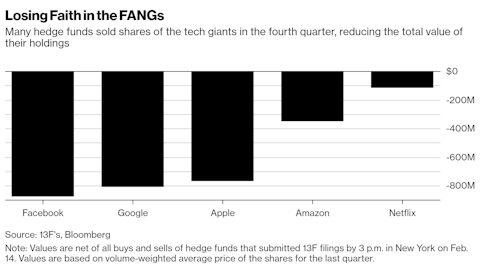In this article, we are going to list the 15 biggest VR companies in the world. Click to skip ahead and jump to the 5 biggest VR companies in the world.
Virtual Reality (VR) is defined as a computer-generated simulation in which a person can interact within an artificial three-dimensional environment using electronic devices such as a head-mounted device (HMD) and gesture-tracking device (GTD). Virtual Reality (VR) provides an immersive artificial world that can seem quite real, using AI and technology.
Now, the VR market is not solely for the hardware segment which consists of the high-tech VR headsets, consoles, PC, smartphones, and other smart electronic devices. In able to be in a VR world, you need an immersive 3D environment that is developed by the software segment. Some of the software segments include training software, application development operating systems, simulation software, gamification software, virtual tour software, segmented reality software, game development software, and learning experience platform software.
When it comes to VR, our imagination is our only limit. There are many more uses of VR ranging from academic studies to engineering, design, business, the arts, and entertainment. Gaming is an obvious VR application that offers the ability to take players into the game in real-time. In 2019, the commercial application dominated the VR market with a share of 52.5%. Besides the gaming and entertainment industries, VR has been widely used for training and educational purposes. One of the most popular VR companies in healthcare is Osso VR. Osso VR is a virtual reality surgical simulation platform that focuses on practicing with virtual tools used by surgeons for orthopedic and spinal surgery. For educational use, Google’s (NASDAQ: GOOGL) Expedition helps teachers in guiding students in exploring the world virtually. On the other hand, virtual reality has been useful in aerospace companies such as Boeing (NYSE: BA), as the company uses hard-flight simulators to reassess and train piloting skills. In 2020, Boeing partnered with Helsinki-based VR start-up, Varjo on training astronauts for Starliner’s first crewed flight. Check out the 16 best space stocks to buy now to include in your portfolio. Apart from these, VR caught its market in the architecture and planning sector. Implementing virtual reality into architecture helps identify errors early in the design process and keeps costs down.

Halfpoint/Shutterstock.com
In 2019, the global VR market was valued at $11.52 billion. The VR industry is projected to reach $87.97 billion by 2025 at a compound annual growth rate (CAGR) of 48.7%. North America is the biggest market for the virtual reality segment which accounted for 44.2% of the global market share as the region has the highest number of start-ups committed to bringing advanced VR technologies to different industries. Major factors driving VR market growth include the evolving demand for entertainment and medical services, technological advancements, and the increasing penetration of VRs in the consumer electronics industry.
With at least a third of the earth’s population in some form of lockdown, coronavirus has forced widespread behavioral change. Being stuck at home for months is challenging, and VR seems to be a game-changer for the moment! From the latest VR headset from Oculus to Argodesign’s artificial window concept and Medicare’s telemedicine for home health. These are all good news from the virtual reality industry. Now, are you more invested to know the biggest VR players in the world? We researched the biggest VR companies in the world and ranked them by their revenue, market cap, assets, and the number of employees from the lowest to highest values. To give you the most accurate results, we sourced these companies’ financial information from Forbes. For private companies, we reviewed their updated financial statements. Now here are the biggest VR companies in the world starting at number 15:
15. Unity Technologies (NYSE: U)
Revenue: $541,779
Market Cap: $40.24 billion
Assets: $1.29 million
Number of employees: 3,379
Headquarters: San Francisco, CA
Unity Technologies is a San Francisco-based video game software development company originally founded in Copenhagen, Germany in 2004. It is the developer of a real-time 3D software platform, providing users with powerful and easy to access tools to create, operate, and monetize real-time experiences.

SAQUIZETA/Shutterstock.com




